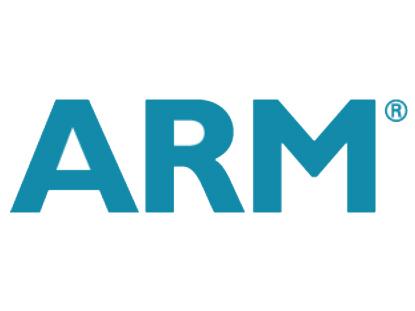Softbank Buys ARM Holdings For $32 Billion
Softbank, the Japanese telecommunications company that also acquired Sprint for $20 billion in 2013, made a deal to buy ARM Holdings, the UK company behind most of the chip IP inside mobile and embedded devices, for GBP 24.3 billion (~$32 billion USD).
This acquisition may surprise many, so the Softbank CEO made a comment on why the company is buying ARM:
“We have long admired ARM as a world renowned and highly respected technology company that is by some distance the market-leader in its field,” said Masayoshi Son, Chairman and CEO of SoftBank.“ARM will be an excellent strategic fit within the SoftBank group as we invest to capture the very significant opportunities provided by the “Internet of Things,” he noted.He added that “SoftBank intends to invest in ARM, support its management team, accelerate its strategy and allow it to fully realise its potential beyond what is possible as a publicly listed company. It is also intended that ARM will remain an independent business within SoftBank, and continue to be headquartered in Cambridge, UK.”
Besides keeping the headquarters in the UK, Softbank also intends to double the number of employees there, as well as increase ARM’s headcount in other countries.
ARM’s Future
ARM IP is not only currently used by virtually all smartphone makers, but it’s also in billions of other electronic devices thanks to the company’s microcontroller chips. With the rise of the Internet of Things, the potential for ARM chips to be in even more devices is even bigger. Softbank’s CEO likely realized that ARM would be in everything as more products become “smart” or connected to the Internet.
With Intel winding down its mobile chip division and Imagination struggling to make MIPS a strong alternative to ARM in these markets, ARM’s future looks even better. However, this would also be dependent on how Softbank treats ARM’s customers in the future. For now, Softbank seems to want to preserve the current state of affairs at ARM, including its management team and its relationship with customers.
If Softbank starts charging significantly more for its IP, or if it refuses to serve certain customers, then some of the customers may start looking elsewhere.
Get Tom's Hardware's best news and in-depth reviews, straight to your inbox.
RISC-V’s Windows Of Opportunity
Right now, while still in a very early stage, RISC-V looks like it might be that alternative. It’s the most modern chip architecture (PDF), and it’s also royalty-free and open source. Chipmakers could modify it as they please, much as smartphone makers do with Android.
That kind of freedom, and perhaps a promise from Google to support the RISC-V architecture in Android, could give ARM chips the competition they need going forward. Android’s virtual machine-based architecture means it’s relatively easy to support a new architecture on which the Java apps could work. Google is also already a member of the RISC-V foundation (as are Qualcomm, AMD, and Nvidia), so it shouldn’t be too difficult for the Android platform to gain support for the new architecture.
Even if all of that happens, ARM will likely continue to remain a dominant leader in the mobile and embedded chip markets for many years, just as it has been for decades before now. Softbank made a relatively safe bet acquiring ARM, even though it paid a roughly 50 percent premium over its existing market cap of $22 billion. How it manages ARM going forward is what will determine the success of the acquisition.
Lucian Armasu is a Contributing Writer for Tom's Hardware US. He covers software news and the issues surrounding privacy and security.
-
therealduckofdeath Literally chalked up as a win for Brexit by the conservatives and UKRIP... "...our most successful companies are exiting Britain! Yay!?"Reply -
Jagwired I didn't realize Sprint was owned by a Japanese company. It's amazing how many US companies are now owned overseas. I know the concept of an American company is nebulous. My Ford for example was built in Canada. IBM is headquartered in the US, but the majority of their workers are in other countries. Still, it seems there's been an uptick in tackovers of US companies in the last decade. It's a bit sad that American symbols like Anheuser-Busch and Jeep are now technically not US companies. (I know ARM is a British company.)Reply -
bit_user Was it a hostile takeover?Reply
I think the post-Brexit timing is no coincidence. The recent drop in the exchange rate probably made this deal feasible.
I wonder if there were any other bidders, and whether this will prompt some Chinese customers to look elsewhere. I wouldn't be surprised it Samsung is now having some regrets that they didn't bid/win.
If Softbank starts charging significantly more for its IP, or if it refuses to serve certain customers, then some of the customers may start looking elsewhere.
Any specific reason for that caveat? Otherwise, I figure it sorta goes without saying. -
spentshells I had no idea they were that big.... I knew they were big but wow I'm blown away, I know they make a lot of chips for a lot of people but even still that is a mammoth price tag.Reply -
therealduckofdeath They don't really make any chips, I think. It's mostly blueprints and guidelines they're making. IP is really valuable when it's something the entire mobile industry relies on. :DReply
